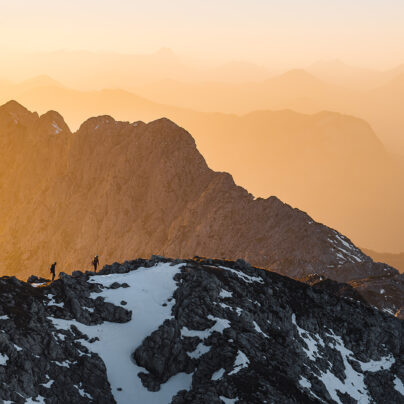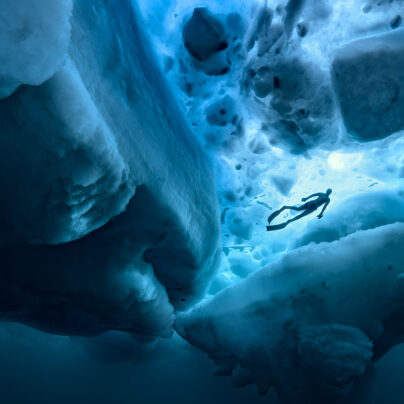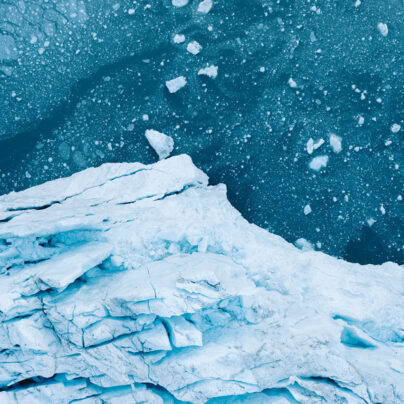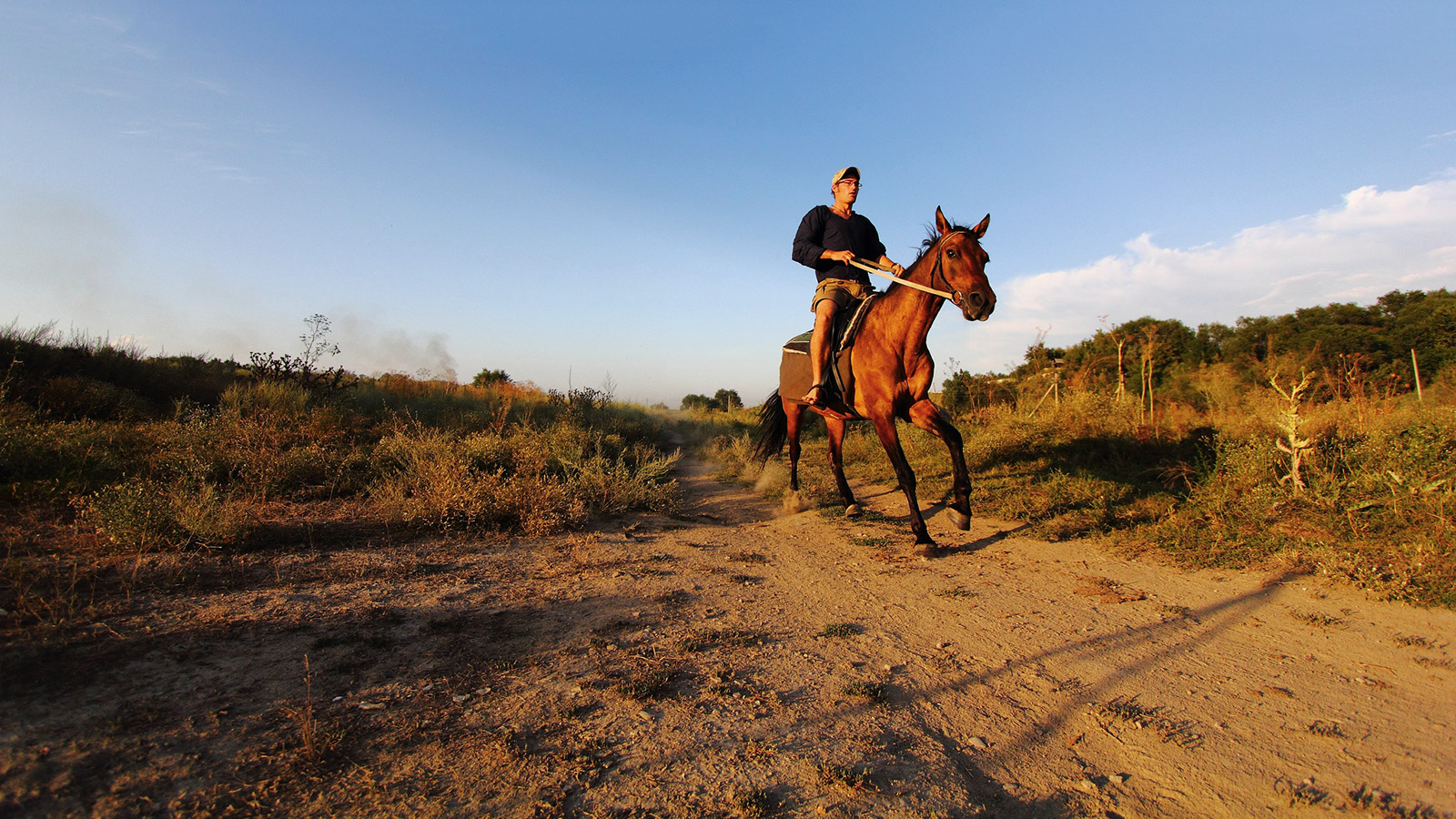Gift For The Darkness
The Post Roads Expedition in Kazakhstan
Written by Jamie Bunchuk | Photography by Matthew Traver
I awoke to black thoughts and a thick tongue. Thirst gnawed at my parched throat in the darkness and all I longed for was a glass of fresh water, not the salt-laced stuff that currently filled my Nalgene bottle. Yet something else also sat there in the tent alongside my physical discomfort. It was the smallest, nagging seeds of worry that all was not well with the horses outside. Getting up, already fully dressed as a barrier against the innumerable whining mosquitoes, I hurried out into the chill midnight. Despite the fiery star-punctured skies above, the valley floor lay shrouded in dense, almost immutable shadow. Below, I could see three shapes streaking silently, rapidly across the long grass: huge black dogs running in the night. ‘Shit. Matt get out here!
The Post Roads Expedition had been on the radar of my consciousness for pretty much the entirety of my early twenties. The idea had started back in 2010 in Kyrgyzstan, when I was rattling about rather dejectedly in the back of a Russian UAZ. Coming home prematurely after an expedition to an unexplored section of the Tian Shan mountain range, I had cast about in the depths of my lugubriosity for some idea of what I could do to justify getting back out to this region of the world. Then I remembered a book I had read – through a cold winter in a small room in Sheffield – called Mountains of Heaven.
This compilation of dairies told the story of an old Anglo-Irish explorer called Sir Charles Howard-Bury, who had come to Central Asia in 1913 to explore and to hunt, riding down the Russian post roads of Eastern Kazakhstan to reach the mountain range I was then heading home from. Hence the idea formed to celebrate the horse-riding section of Howard-Bury’s original journey by paying homage to it with a modern expedition, to be launched a century to the day from when he first set off. After three years of planning and a lot of sacrifice, we were finally on that expedition.
The town of Kindikti currently holds the title of the bleakest outpost of humanity I have yet to visit. Haphazard streets, littered with debris and rubbish, were surrounded on all sides by battered once-white dwellings and ramshackle fencing. Exposed electrical wires hung abundantly, connecting up the odd, standout handful of lampposts that dotted the town, although all they seemed to illuminate was the broken glass at their bases. We hardly stopped for long in that place, imagining some drunk – of whom we could see a few staggering about – would take such a strange sight in us as good cause for trouble.
The idea formed to celebrate the horse-riding section of Howard-Bury’s original journey by paying homage to it with a modern expedition, to be launched a century to the day from when he first set off. After three years of planning and a lot of sacrifice, we were finally on that expedition.
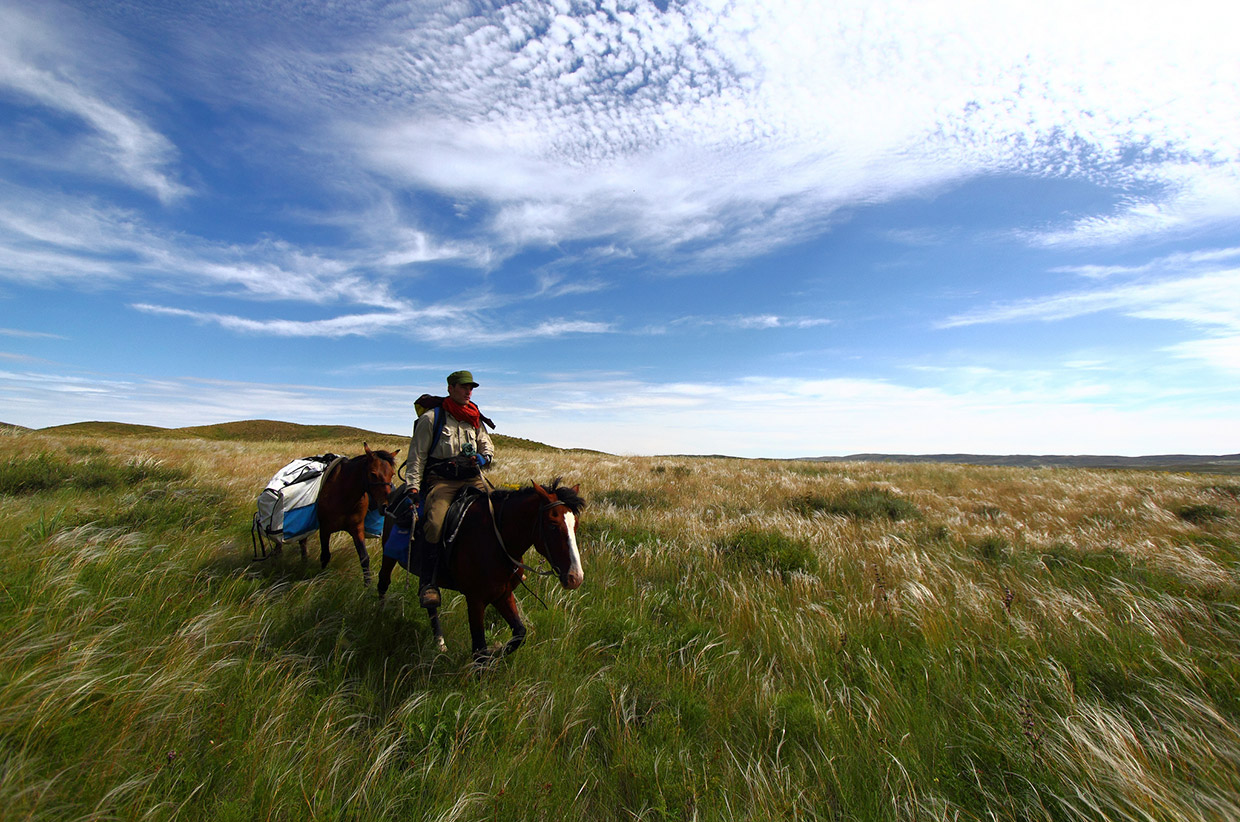
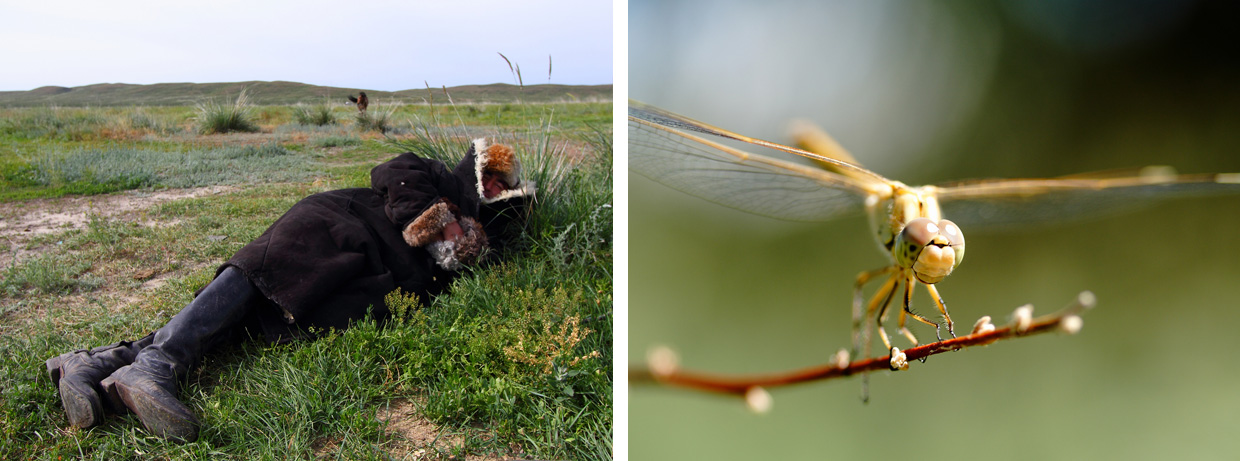
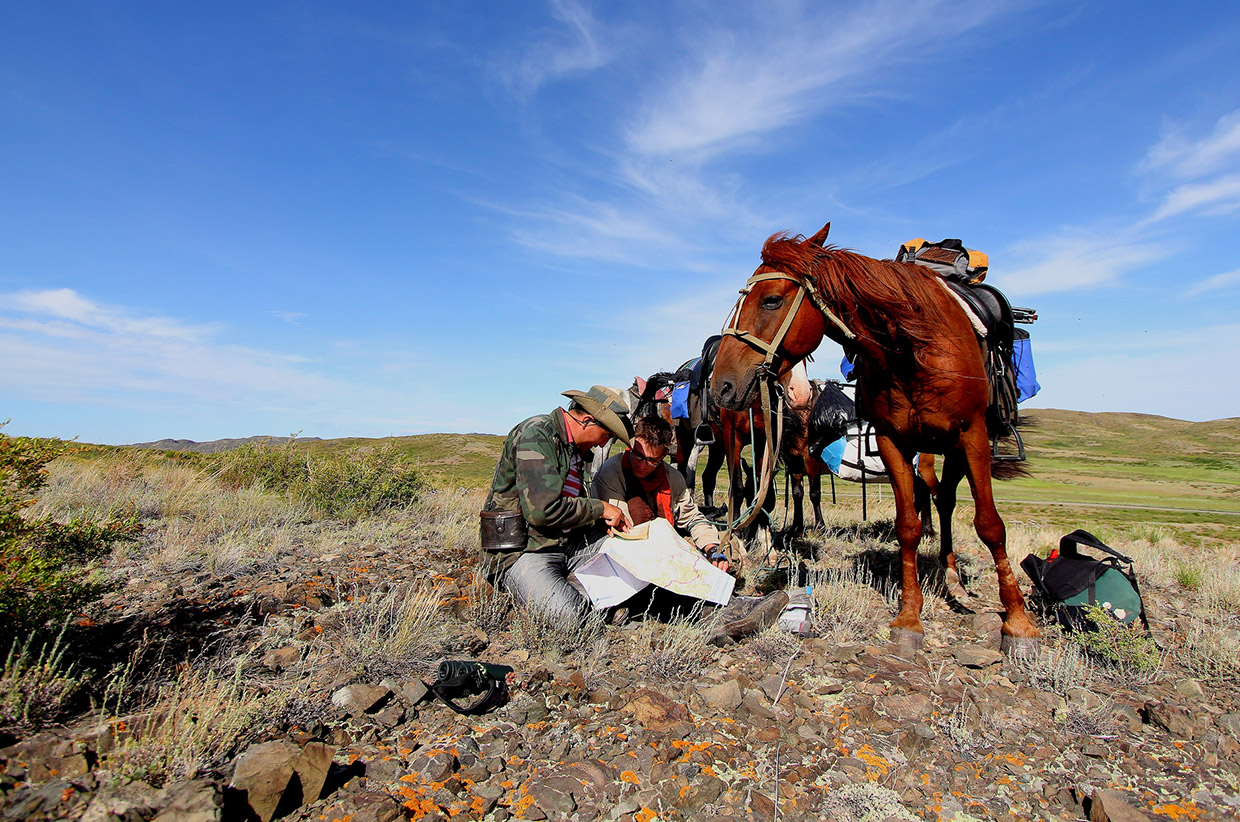
‘Oh man, come have a look at this,’ I called over to Matt. ‘What? What’s up?’ The previous owner – a swaggering head of an aged, near-defunct collective farm – had not treated his horses well and an old saddle sore of his creation had opened up from the rubbing of my saddle’s girth-band, which had shifted out of place during the steep ascent. We wouldn’t have bought two of our animals from him at all had it not been the unavailability of anything else. Unlike neighbouring Kyrgyzstan and Mongolia, in Kazakhstan horses are primarily raised for their meat and their milk and, as such, securing suitable riding steeds is not only a hard but also very expensive affair.
‘What do you reckon we should do?’ Matt asked. ‘Well, we can try putting some foam around it perhaps? Or what happens if I shift the band back- arghh! Fuck!’ Charlie had bit me hard in the inner thigh, and in that moment – with the repressive heat bearing down and the bruise swelling painfully – it was all I could do to hold back the black reflex to reciprocate the attack in kind. There lay within me a very powerful desire to really pain the thing that caused me harm, circumventing all moderating voices of reason and control. Walking away for a few minutes to calm down, I came back to re-jig the saddle and to disinfect the wound. The sting of the antiseptic spray caused Charlie to throw a kick in my direction, striking my left kneecap, and I went down like a sack of spuds. It really was turning into a long and drawn-out couple of days.
The sun crushed into Matt and I, beat into all three horses too. A scarf was wrapped around my face and the world was seen through a veil of fine red mesh, shade from the searing intensity of the sunlight bouncing off barren earth. Charlie walked alongside me complacently, but I didn’t pay him much attention at that particular moment, instead nursing a searing headache from lack of water.
You try to do everything in your power to keep your horses safe and well, but on expedition mistakes are made regardless, and new solutions often cause new problems too. It’s a big balancing act between action and responsibility and – at my lowest ebbs – I found it a very heavy moral burden to bear. Hence I decided, with Charlie’s rub open, that I would walk the remainder of that day, until we could come up with a plan or the wound healed. The sun crushed into Matt and I, beat into all three horses too. A scarf was wrapped around my face and the world was seen through a veil of fine red mesh, shade from the searing intensity of the sunlight bouncing off barren earth. Charlie walked alongside me complacently, but I didn’t pay him much attention at that particular moment, instead nursing a searing headache from lack of water and trying hard not to think about the hunger that gnaws at the pit of one’s stomach after a long few days of not eating very much.
“Shall we stop for a bit?’ Matt asked, already beginning the complex process of dismounting from his spaceship of a saddle, surrounded on all side by two tripods and the other paraphernalia of his photography. ‘Yeah, get I’ll the noodles out too, just a sec.’ Kindikti had not been a well-stocked town, and the only breakfast food we’d been able to get resembled gruel, with lunch consisting of a single packet of old dried noodles each and a handful of biscuits. We squatted, surrounded by our horses, holding their reins. ‘Oh shit. That tastes rank mate,’ I spat out the biscuit. ‘It tastes like petrol. How the hell did that happen?’ ‘Christ if I know,’ replied Matt. ‘The petrol stove must have leaked somehow,’ he added, peering into our full packbags for the offending item. ‘Now what?’ I asked. He shrugged. ‘We haven’t got anything else, not if we want dinner at any rate. We’re just going to have to eat them.’ We continued to squat in the empty steppe, burping gasoline fumes and cursing quite loudly and quite explicitly into the stiflingly still air.
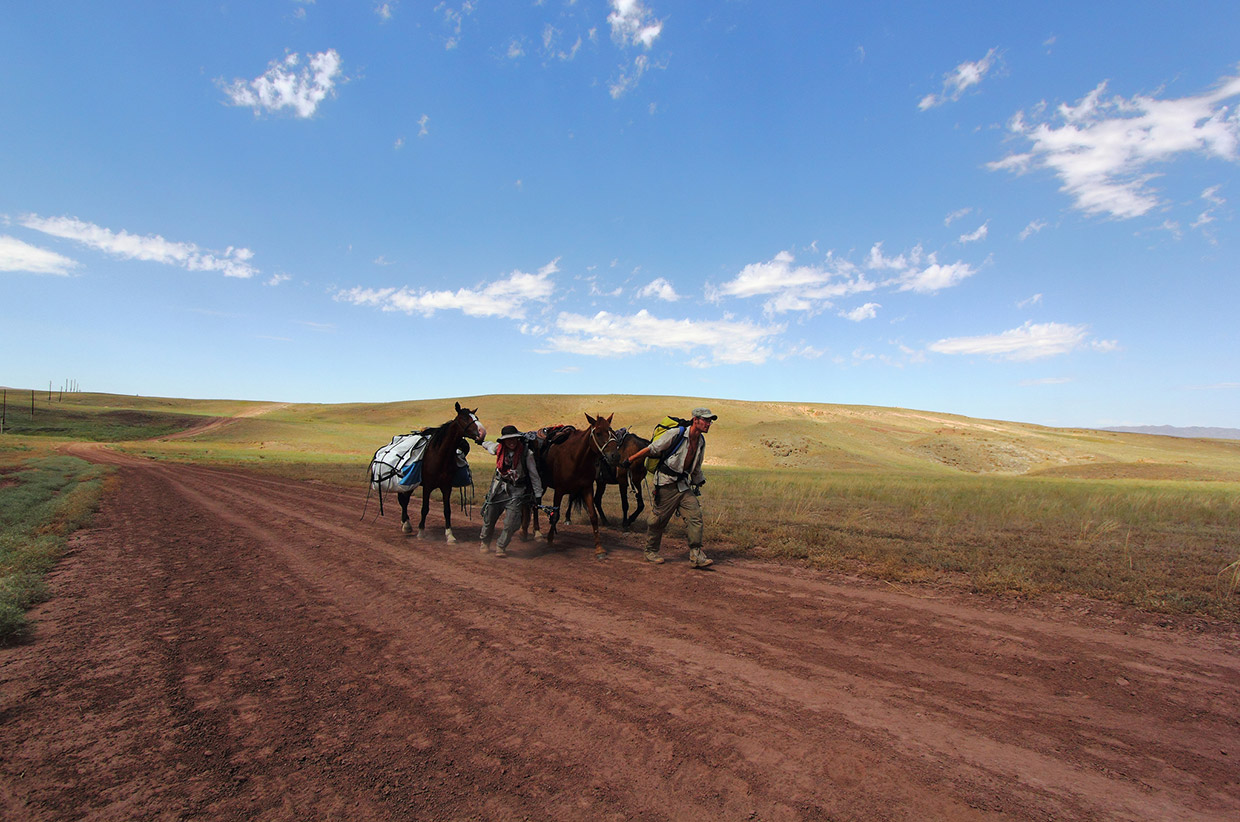
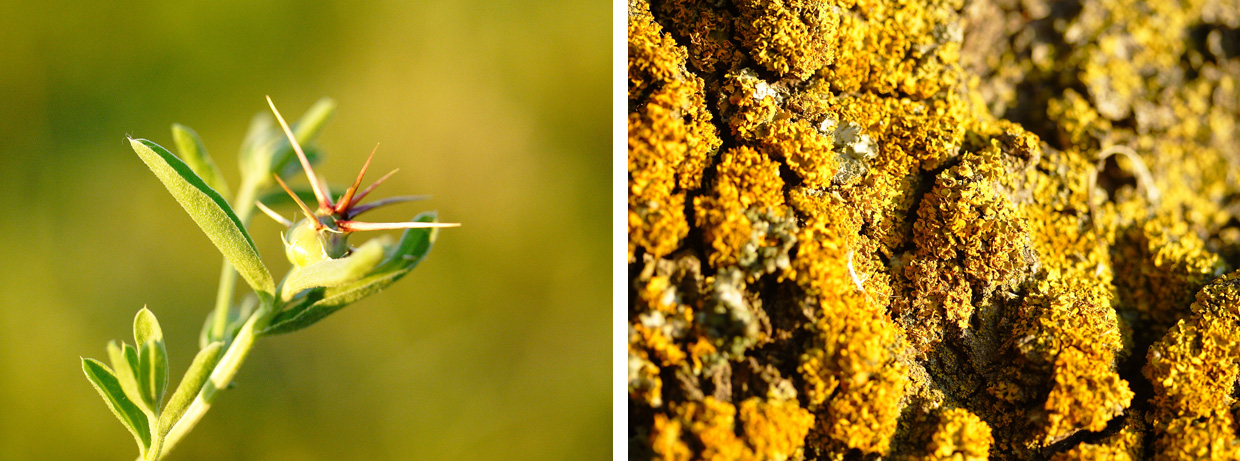

‘Screw this,’ I said aloud, my dark thoughts lifting for once, and I went to get the saddle. Totoro seemed as eager to get away from his constraints as I was mine, and he stood perfectly still as I saddled him up. I sprang up onto his back and with the slightest touch of my heels we were off, accelerating across the flats adjacent to a river.
Jagged and shattered cliffs streamed past quickly. We had had no real goal or destination in mind, just to see where the curve of the water took us. The land was lush; dead yellow grass turned to green, retaining just a hint of gold in the evening light. Thrown into the mix were the reds of small flowers, which transformed into a stream of colour with the acceleration of our gallop, like lines of paint streaking down a canvas. I gave Totoro another kick and he spurted even faster than before, my vision narrowing to a tunnel of what obstacles lay immediately ahead. The horse responded to the slightest touch of the reins, putting as much faith in my judgement as I did in his, and we picked up yet more and more speed. The wind howled past our ears and the ground dissolved into a blur; the sensation of such immense momentum, joy and risk was cathartic. We were the only two around for many, many miles. Riding through an empty land, unchanged for a millennia or more; timeless and at that moment, utterly perfect.
We stopped briefly at a shallow river. Panting heavily and thirsty from the efforts of our sprint, I jumped off the horse and we both drank greedily from the clear stream. Totoro’s muddy hoof prints started to fill with water as I swung back into the saddle to head for home. Above, I noticed the first evening star was poking its way through a clearing sky. The past few days had been a really hard trial – and a taster of the many more ordeals that still lay ahead for us – but as we galloped back to camp that evening I knew that for some reason, at least the night would be okay. For no beasts prowled in its darkness.


Jamie Bunchuk, joint editor for Sidetracked, is an explorer, equestrian Long Rider (assoc.) and journalist. The enticing lure of expedition life has taken hold and he now spends most of his days organising adventures and writing about all aspects of expedition and outdoor life. His past expeditions have included: a 63 day unaided crossing of the length of Eastern Kazakhstan by horse; one month living and working with Kirghiz hunters in South East Tajikistan; a 100 mile, multi-day, camel supported run across the Red Sands Desert in Uzbekistan; chronicling the lives of Kazakh eagle hunters in Western Mongolia, and winter packrafting down the Khovd River, Mongolia, in retrofitted and homemade packrafts.
W: www.jamiebunchuk.comF: www.facebookcom/ExpeditionReporting T: @Bunchuk
Matt Traver is a British-American national originally from Hong Kong. He has organised and lead expeditions to remote and little-explored areas to attempt unclimbed mountains such as in Arctic Greenland, the jungles of Malaysia and alpine peaks in Kyrgyzstan on the border of China. He is currently working on completing the documentary films for One Steppe Ahead which will include Under and Eastern Sky, A Portrait of Orozbek, Through Grains of Sand and Sun and Wild Steppe.
W: www.matthewtravercreative.comF: www.facebookcom/matthewtraver T: @matthewtraver
